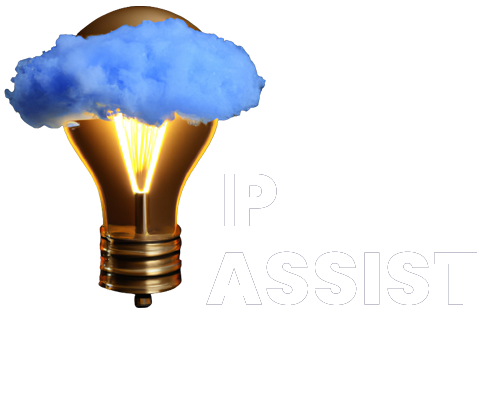FAQ's
Intellectual property represents the property of your mind or intellect. In business terms this means your proprietary knowledge. Many business are in the process of commercialising their these ideas and manage them by protecting our ideas legally and commercialising them commercialising to create value.
-
WHAT IS INTELLECTUAL PROPERTY?
(IP) refers to creations of the mind, such as inventions, literary and artistic works, symbols, names, images, and designs used in commerce. The protection of IP is vital to promote innovation and creativity, and it is crucial to understand the different types of IP and how to protect them.
-
WHAT IS A PATENT?
Patents are granted for new, useful, and non-obvious inventions and give the owner the right to exclude others from making, using, selling, or importing the invention for a limited period of time, usually 20 years from the filing date.
-
WHAT IS A TRADE MARK
Trademarks are distinctive signs, logos, or symbols used to identify and distinguish a company's products or services from others. Trademarks can be registered with the government and are protected indefinitely as long as they are being used in commerce.
-
WHY IS COPYRIGHT IMPORTANT?
Copyrights protect original works of authorship, such as books, music, and software, giving the owner the exclusive right to reproduce, distribute, perform, and display the work. Copyrights last for a set period of time, usually the life of the author plus a specified number of years after their death.
-
WHAT ARE TRADE SECRETS?
Trade Secrets refer to confidential business information that provides a company with a competitive advantage. Trade secrets are not registered and are protected as long as they are kept confidential.
-
WHY IS INTELLECTUAL PROPERTY PROTECTION ESSENTIAL?
It encourages innovation and creativity by giving creators and innovators the assurance that their hard work will not be stolen or misused. If you are concerned about protecting your IP, it is recommended that you seek the advice of a qualified attorney.
-
WHAT DOES A COMMERCIAL LAWYER DO?
A commercial lawyer assist with a variety of legal issues, including contract negotiation, business formation and structuring, mergers and acquisitions, intellectual property, and employment law. They also provide guidance on regulatory compliance, dispute resolution, and risk management.
-
DOES A DOMAIN OR A REGISTERED BUSINESS NAMES PROTECT MY NAME?
No. Only a trade mark gives you full protection of your business name or domain name.
-
WHAT IS A TRADE MARK?
Trademarks are registered with a certificate which protects your business brand for 10 years. Having a registered Trademark allows you to distinguish the goods and services of one trader from another. i.e Can be a logo, word phrase, letter, number, sound, smell, shape, picture aspect of packaging or a combination of these. Registering your Trade Mark creates an asset to protect your name in the marketplace (including business name, domains, and marketing).
-
WHAT IS COPYRIGHT?
Copyright right is the fundamental right of intellectual property which protects the expression of ideas. It is like oxygen and exists throughout your business education resources, reports, and now in digital and data. Copyright is protected through contracts, which enshrines the value of your ideas and enables you to get paid for what you write, create and make.
-
WHAT IS A DESIGN?
Designs are used to protect the visual appearance of manufactured products. Design registration refers to the features, shape, configuration patter or ornamentation which can be judged by the eye. They are registrable with IP Australia and can protect your name for 5 years.
-
WHAT IS A PATENT?
A patent is a right granted for any device, substance, method or process which is new, inventive and useful Note Legal registration grants a legally enforceable right to exclusive ownership and to exploit the invention for the life of the patent.
-
HOW CAN I PROTECT CONFIDENTIAL INFORMATION?
The law of confidential Information prevents the unconscionable use of others ideas which are used in trust or confidence. Be diligent and discreet about your business ideas and if there is a strong chance of duplication, register your intellectual property, or use a confidentiality agreement or contract in place when negotiating with parties. Every contract with your partners, employees or independent contractors should contain confidentiality provisions.
-
HOW DO I PROTECT MY/MY CUSTOMERS DATA OR PRIVACY INFORMATION?
Under the Privacy Act 1988 every business owner is required to have a privacy policy in place to protect their customers information. This can lead to fines, and /or investigation by the Office of Australian Information Commissioner (OAIC) who also investigates privacy breaches.
-
HOW CAN TERMS AND CONDITIONS PROTECT ME?
Having on your website, and at the point of engagement with your customer robust terms and conditions protects you and your business.
Agreements prevent disagreements and having a contract in place (otherwise also known as T&Cs) protects you, your clients and your relationships. Always consult with a lawyer when putting a contract in place, to protect your interest and secure trust in your business relationships.
Quick Links
Help
IPAssist: Trade Mark lawyer Contracts and Commercial Legal Advice Intellectual Property Lawyer Australia.
Get expert, easy and cost effective legal help from Australia’s best Intellectual property IP lawyer services based in Sydney, Brisbane, Melbourne, Adelaide and Darwin. Trade Mark lawyer Contracts and commercial legal advice on how to protect your ideas through the best Intellectual Property practices.
© 2023 IP Assist. All Rights Reserved | Website by Octopus Digital

